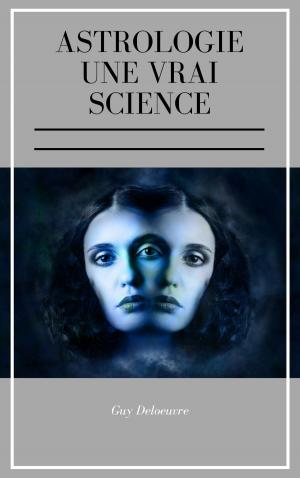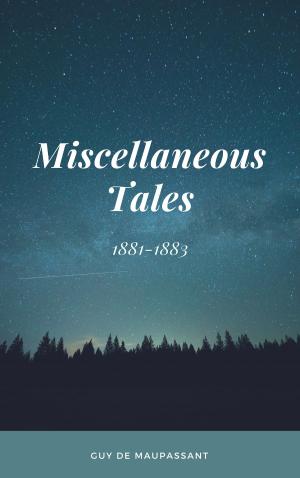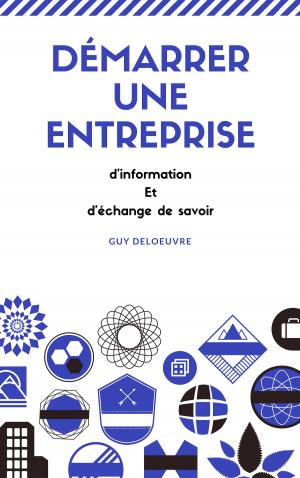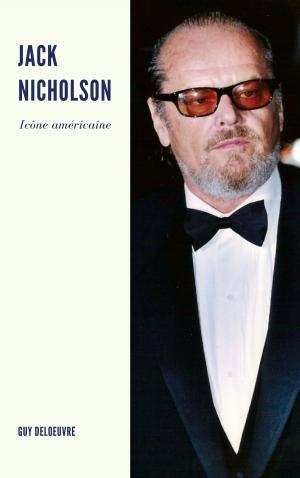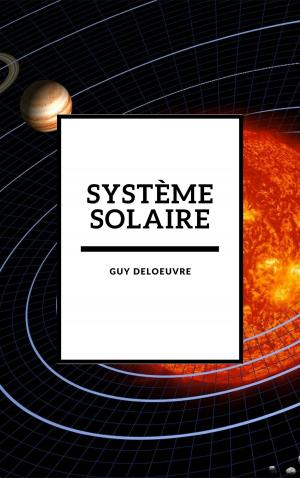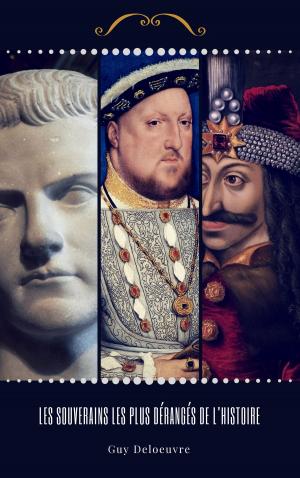| Author: | Honoré de Balzac | ISBN: | 1230003200971 |
| Publisher: | Guy Deloeuvre | Publication: | April 24, 2019 |
| Imprint: | Language: | English |
| Author: | Honoré de Balzac |
| ISBN: | 1230003200971 |
| Publisher: | Guy Deloeuvre |
| Publication: | April 24, 2019 |
| Imprint: | |
| Language: | English |
If this catchy title seems to baptize a work of philosophy or science, in "The Search for the Absolute", it is strictly speaking an invented story and not a philosophical essay or a scientific text.
Balthazar Claës, a 50-year-old passionate about chemistry and alchemy, sets out in search of the Absolute, defined here as the basic principle underlying all creation:
"I make metals, I make diamonds, I repeat nature," he cried.
Scientifically, this research seems too complicated and may not lead to anything, and the fact that Belthazor persists in it means that he wants to go beyond human limits, that he sees himself as equal to God. So it's a scientific process that starts badly and we're going to try to see how things that start badly end.
So, the very first question to ask ourselves could be the following: what is really the reason for all this frantic quest, when we know that Belthazor, at the beginning of the book, in addition to being an exemplary husband and father, is very rich, very cultured and full of common sense? Despite his attempt to convince Josephine (his wife) and Margarita (his daughter) that they would one day become even richer thanks to the results of his quest, his own words clearly show that it was not the money he was looking for, but glory:
From the ethereal matter that emerges, says Claës, and which is undoubtedly the word of the Absolute. So think that if I, me first! if I find, if I find, if I find, if I find!
Again, when his wife asked him if it was true that he was looking to make gold, Belthazor's astonishment confirmed that this was not what he wanted:
Why gold? Why gold?
This disinterest in money is total and undeniable because, as revealed above and detailed below, the chemist's consciousness is absorbed by his search for the Absolute and/or glory. He also shows us how the love of glory diverts a bourgeois from the love of his wealth and everything that makes a man happy in 19th century Flanders. And it is this obsessive search for glory that must hold our attention, not the search for the Absolute, which seems insignificant in itself or, at least, in the circumstances of the hero. In other words, here, the Absolute is not an end but a means to glory.
Obviously, this is not just any glory. The hero wants to arrive where no one has arrived and where perhaps no one else will. Because there must be only one single absolute and it is this absolute, inaccessible for the moment, that obsesses the chemist. It is therefore a competitive spirit that contrasts with the scientific spirit. And it is above all this immorality of the scientist that the writer vitupers, not the passion of science, that can be submitted to the authority of reason, like the passion to write that drives Balzac himself and that seems to contrast with that of his hero.
But what is more aberrant in the story and makes the moral interest of the novel even more visible is the fact that Claës is so obsessed with his quest that he becomes irresponsible, unconscious. Whereas before, he and his family lived a peaceful and happy life, as Balzac describes it, now he takes refuge in his laboratory and completely disregards his wife and four children and, as if to confirm his monomania, he wastes huge sums of money on instruments and chemicals. In other words, not only does he destroy his time, money and reason, but also the life of his family. And this sacrifice to genius and glory, which replaces happiness with misfortune, love with love with love, wealth with poverty, progress with decline, and reason with madness, is one of the essential themes that give meaning and life to the author's intrusions, who does not hesitate to tear up the narrative fabric to express his own point of view:
Isn't the Genie a constant excess that devours time, money, the body, and leads to the hospital even faster than bad passions?
But if, at the end of the novel, we witness the chemist's reconciliation with his wife and children, his failure in the search for the philosopher's stone, his madness and his death, it is because reason and moral values, which survive, have triumphed over the love of glory and monomaniac passion. Certainly, this triumph came too late, because the quest for the Absolute tortured the family for twenty years and caused the irreparable. But the importance of this triumph is in the message he conveys to us: in the end, the values of morality always triumph and survive all that common sense condemns.
Of course, Belthazor's quest is subject to several interpretations. A perfectly exhaustive or more detailed analysis will not, in our opinion, omit the necessarily philosophical theme of happiness: what is happiness, if it is not the one that the hero and his family rejoiced in before Balthazar's immorality threw them into misfortune? In other words, if we now know that the chemist was looking for the Absolute to find glory and that instead of it, he found madness and then death, what really pushed him to seek glory, when he had everything to be happy and notorious even, without resorting to his immoral and murderous search?
Thus, it is important to say that, despite the multiplicity of themes that form an exciting spiral, the writing that is full of aphorisms and points of view ("love is not only a feeling, it is also an art"), the lexical fields that refer to science and art, the love of Josephine that adorns the plot, and many other points that draw the reader's attention, morality is the main lesson of this work. Balzac, who rises up against the morals of his time, exposes us here a moral problem, which reminds us that, as Rabelais said in 1532, in his book Pantagruel, "science without conscience is but the ruin of the soul".
If this catchy title seems to baptize a work of philosophy or science, in "The Search for the Absolute", it is strictly speaking an invented story and not a philosophical essay or a scientific text.
Balthazar Claës, a 50-year-old passionate about chemistry and alchemy, sets out in search of the Absolute, defined here as the basic principle underlying all creation:
"I make metals, I make diamonds, I repeat nature," he cried.
Scientifically, this research seems too complicated and may not lead to anything, and the fact that Belthazor persists in it means that he wants to go beyond human limits, that he sees himself as equal to God. So it's a scientific process that starts badly and we're going to try to see how things that start badly end.
So, the very first question to ask ourselves could be the following: what is really the reason for all this frantic quest, when we know that Belthazor, at the beginning of the book, in addition to being an exemplary husband and father, is very rich, very cultured and full of common sense? Despite his attempt to convince Josephine (his wife) and Margarita (his daughter) that they would one day become even richer thanks to the results of his quest, his own words clearly show that it was not the money he was looking for, but glory:
From the ethereal matter that emerges, says Claës, and which is undoubtedly the word of the Absolute. So think that if I, me first! if I find, if I find, if I find, if I find!
Again, when his wife asked him if it was true that he was looking to make gold, Belthazor's astonishment confirmed that this was not what he wanted:
Why gold? Why gold?
This disinterest in money is total and undeniable because, as revealed above and detailed below, the chemist's consciousness is absorbed by his search for the Absolute and/or glory. He also shows us how the love of glory diverts a bourgeois from the love of his wealth and everything that makes a man happy in 19th century Flanders. And it is this obsessive search for glory that must hold our attention, not the search for the Absolute, which seems insignificant in itself or, at least, in the circumstances of the hero. In other words, here, the Absolute is not an end but a means to glory.
Obviously, this is not just any glory. The hero wants to arrive where no one has arrived and where perhaps no one else will. Because there must be only one single absolute and it is this absolute, inaccessible for the moment, that obsesses the chemist. It is therefore a competitive spirit that contrasts with the scientific spirit. And it is above all this immorality of the scientist that the writer vitupers, not the passion of science, that can be submitted to the authority of reason, like the passion to write that drives Balzac himself and that seems to contrast with that of his hero.
But what is more aberrant in the story and makes the moral interest of the novel even more visible is the fact that Claës is so obsessed with his quest that he becomes irresponsible, unconscious. Whereas before, he and his family lived a peaceful and happy life, as Balzac describes it, now he takes refuge in his laboratory and completely disregards his wife and four children and, as if to confirm his monomania, he wastes huge sums of money on instruments and chemicals. In other words, not only does he destroy his time, money and reason, but also the life of his family. And this sacrifice to genius and glory, which replaces happiness with misfortune, love with love with love, wealth with poverty, progress with decline, and reason with madness, is one of the essential themes that give meaning and life to the author's intrusions, who does not hesitate to tear up the narrative fabric to express his own point of view:
Isn't the Genie a constant excess that devours time, money, the body, and leads to the hospital even faster than bad passions?
But if, at the end of the novel, we witness the chemist's reconciliation with his wife and children, his failure in the search for the philosopher's stone, his madness and his death, it is because reason and moral values, which survive, have triumphed over the love of glory and monomaniac passion. Certainly, this triumph came too late, because the quest for the Absolute tortured the family for twenty years and caused the irreparable. But the importance of this triumph is in the message he conveys to us: in the end, the values of morality always triumph and survive all that common sense condemns.
Of course, Belthazor's quest is subject to several interpretations. A perfectly exhaustive or more detailed analysis will not, in our opinion, omit the necessarily philosophical theme of happiness: what is happiness, if it is not the one that the hero and his family rejoiced in before Balthazar's immorality threw them into misfortune? In other words, if we now know that the chemist was looking for the Absolute to find glory and that instead of it, he found madness and then death, what really pushed him to seek glory, when he had everything to be happy and notorious even, without resorting to his immoral and murderous search?
Thus, it is important to say that, despite the multiplicity of themes that form an exciting spiral, the writing that is full of aphorisms and points of view ("love is not only a feeling, it is also an art"), the lexical fields that refer to science and art, the love of Josephine that adorns the plot, and many other points that draw the reader's attention, morality is the main lesson of this work. Balzac, who rises up against the morals of his time, exposes us here a moral problem, which reminds us that, as Rabelais said in 1532, in his book Pantagruel, "science without conscience is but the ruin of the soul".


